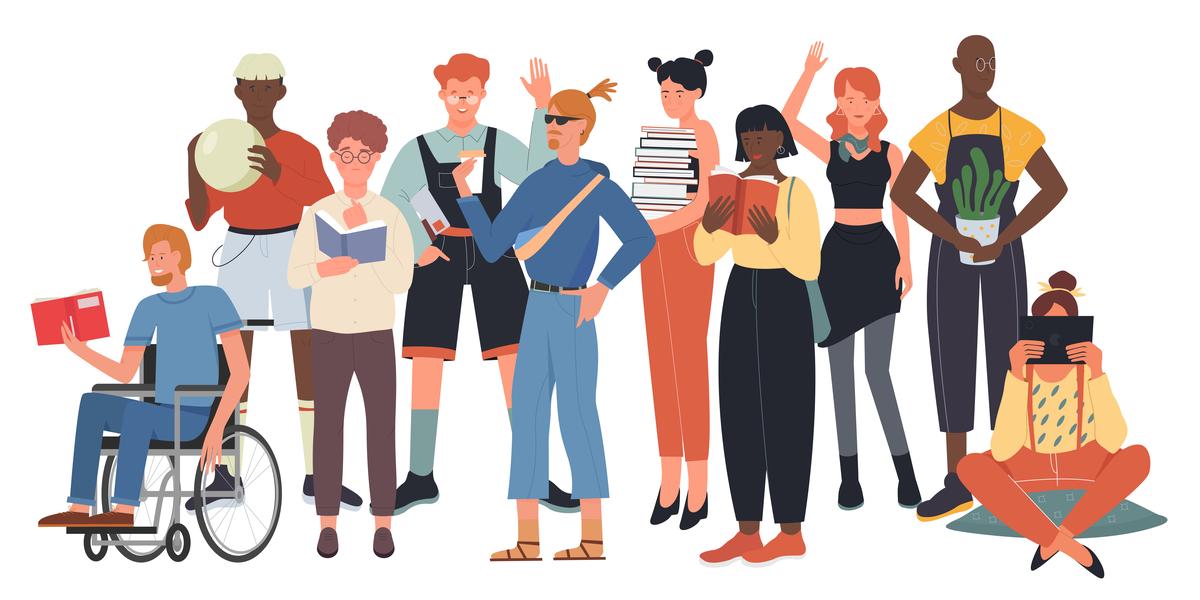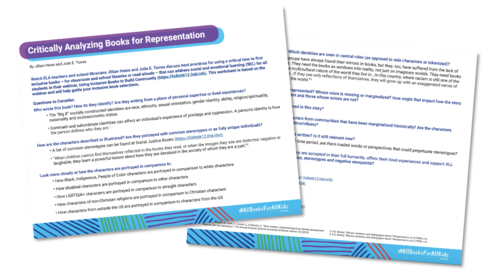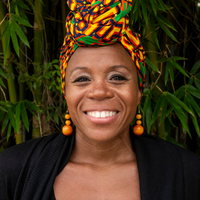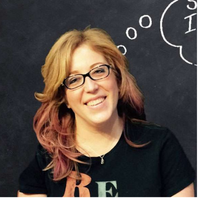

BLOGS > DECEMBER 17, 2020
BY JULIA E. TORRES AND JILLIAN HEISE

It is a moral imperative of our work with children that we ensure all children can be affirmed and seen in the books that we read to them. These are what Dr. Rudine Sims Bishop calls “mirrors.”
“The decisions we make about which texts to include in our classroom communities must serve a purpose of supporting all students and all of our society.”
It is also a moral imperative of the work we do with children to ensure that they are able to see others who are not like themselves and understand their place within the larger global society in which we live. This is what Dr. Rudine Sims Bishop calls “windows.”
Curating inclusive collections and making decisions on what books to include and exclude must take into consideration these two moral imperatives of our work as educators. It also must be recognized as a keystone of our obligation as educators to first do no harm. So, the decisions we make about which texts to include in our classroom communities must serve a purpose of supporting all students and all of our society.
Children deserve to be seen and recognized for their full humanity, and they deserve to have their lived experiences affirmed on the pages of the books that we purchase, promote, highlight, recommend, read aloud, put into curriculum and share with them. This is the beauty and honor, and obligation, of the work that we do with young people. Using books to build community also strengthens our relationships with one another, enables student to empathize and provides them with the tools they will need to thrive in a rapidly changing and expanding world.
One of the first steps to curating inclusive collections is to ensure that we move beyond the mindset that says having a diverse book collection is enough. In order to offer stories with a wide range of linguistic, cultural and ethnic representation to students, educators must learn about what makes some texts true and authentic representations of cultures outside their own.
"An important part of this work requires that all educators continually work to develop a critical consciousness to ensure we are providing not just representation, but representation that is free of problematic elements that perpetuate negative stereotypes."
It is still true that many books are published that misrepresent or portray historically marginalized or erased identities and lived realities, which can do harm, reversing the goal of building an inclusive collection. Hence the importance of planning and purchasing with an anti-biased and actively inclusive mindset to ensure we actively promote books that affirm all identities. The best way to do this is to become knowledgeable about authors, publishers and book distributors that specialize in promoting #OwnVoices stories.
An important part of this work requires that all educators continually work to develop a critical consciousness to ensure we are providing not just representation, but representation that is free of problematic elements that perpetuate negative stereotypes. We must continuously and actively work to become aware of erasure and marginalization in young people’s literature, and the harm that it causes both to those whose stories are erased and those who see their own lived realities and identities overrepresented, continuously centered or glorified.
Some of our go-to resources to support us in these efforts:
In our webinar, we talked about approaching educational communities by asking questions, building connections and being intentional in our text selections. We hope these resources, and what we shared in the webinar, will support your efforts to provide a welcoming and affirming space for all of your students in your classroom and school communities.
There is no one way to approach the work of curating inclusive collections, but we hope to provide you with some steps that will make the work more approachable in your community.

Perhaps one of the most important things to remember is that educators should work together with students and parents to have conversations about topics like censorship and erasure so that we can all grow together as we strive to create a more healing and inclusive approach to the educational experience.

Julia E. Torres
ELA Teacher and Grades 6-12 Librarian
Denver Public Schools
JULIA E. TORRES is a veteran language arts teacher and librarian within the Far Northeast Region of Denver Public Schools. As a teacher/activist committed to education as a practice of freedom, her practice is grounded in the work of empowering students to use literacy to fuel resistance and positive social transformation. In cooperation with The Educator Collaborative, Julia facilitates workshops and professional conversations about anti-bias/anti-racist education, social justice and culturally sustaining pedogogies in Language Arts, as well as digital literacy and librarianship. Her work has been featured in several publications, including NCTE's Council Chronicle, NPR, Al Jazeera's The Stream, PBS Education, KQED MindShift, the New York Times Learning Network, The Chicago Tribune, ASCD's Education Update, School Library Journal and many more.

Jillian Heise, NBCT
Grade K-5 Library Media Teacher
Heise Reads & Recommends
JILLIAN HEISE, NBCT & MLIS, is currently a K-5 Library Media Teacher in southeastern Wisconsin. She previously taught seventh and eighth grade ELA in the Milwaukee area for eleven years. Jillian is the founder of #classroombookaday and dedicated to supporting all student identities and lived experiences through access to inclusive literature. She brings her literacy expertise and knowledge of kid lit to her role as Chair of the WSRA Children’s Literature Committee.
An Author Interview with Drew Daywalt
June 27, 2025
Drew Daywalt, award-winning author of the best-selling The Day the Crayons Quit series, is about to release his second middle grade book with illustrator Mike Lowery, No Sam! and the Meow of Deception. The title continues the hilarious adventures of Sam...
Read more
An Author Interview with Adam Wallenta and Makana Wallenta
June 27, 2025
Get ready to rock the galaxy with the first volume of Punk Taco – a wildly imaginative, music-fueled sci-fi adventure from father-son duo Adam and Makana Wallenta. Created when Makana was just five years old, this award-winning graphic novel now debuts...
Read more
An Author Interview with Lisa Manuzak Wiley
June 27, 2025
A bewitching new graphic novel series is arriving this fall!Author-illustrator Lisa Manuzak Wiley, who grew up in Hawaii, blends cozy fantasy, sisterhood, and tropical charm in a heartfelt homage to her roots: The Witches of Pepperwood Bay Vol. 1. Lisa...
Read more
What We're Reading – Books to Add to Your TBR List
June 4, 2025
As a Follett Content Outside Sales Consultant, I’m not only an avid reader, but also a passionate book reviewer! I’ve curated my top 10 book picks that are perfect for adding to your To Be Read (TBR) list. These titles...
Read more
Author Joseph Koszary on the Changes Made to the International Baccalaureate Extended Essay
May 22, 2025
As someone who’s served as an extended essay coordinator, examiner, and supervisor, I’ve grown deeply familiar with the previous incarnation of the extended essay (EE). Like many of you, years of accumulated experience have made supporting students through the process...
Read more
Celebrate Literacy All Year Long: Host an Online Book eFair!
May 12, 2025
Reading and literacy are essential parts of our lives, and there are numerous events throughout the year dedicated to celebrating and promoting these important skills. Hosting a Follett Book eFair is a fantastic way to engage your school community, share the...
Read more